What is Relational Cultural Therapy?
Relational Cultural Therapy (RCT) is a therapeutic approach that emphasizes the centrality of relationships and cultural context in psychological well-being. Developed by Jean Baker Miller and colleagues at the Stone Center at Wellesley College in the 1970s and 1980s, RCT posits that healing and growth occur through the development of mutually empathic, growth-fostering relationships.
At the heart of RCT is the idea that humans grow through and toward connection throughout the lifespan. Isolation is seen as the primary source of suffering, while authentic, reciprocal relationships are seen as necessary for optimal development. RCT challenges traditional Western views of the self as separate and autonomous, instead viewing the self as fundamentally relational and embedded in a social and cultural context.
Is Relational Cultural Therapy Evidence-Based?
As a relatively new approach, the empirical evidence base for RCT is still developing. However, a growing body of research supports the efficacy of RCT principles and interventions for a range of mental health concerns.
Studies have found that the relational-cultural factors emphasized in RCT, such as mutual empathy, authenticity, and growth-fostering connections, are associated with positive therapeutic outcomes. RCT-based interventions have demonstrated effectiveness in treating depression, anxiety, trauma, and eating disorders, among other conditions.
However, like many humanistic and relational therapies, RCT can be challenging to study using traditional quantitative methods due to its focus on subjective experience and the therapy relationship. More qualitative and process-oriented research may be needed to fully capture the mechanisms of change in RCT.
What are the Core Tenets of Relational Cultural Therapy?
RCT is grounded in several key assumptions about human development and well-being:
- Relationality: Humans are fundamentally relational beings who grow through and toward connection. Authentic, mutual relationships are necessary for optimal development and functioning.
- Mutuality: Growth-fostering relationships are characterized by mutual empathy, mutual empowerment, and a sense of relational responsibility. Both parties in a relationship must be open to being affected by the other.
- Cultural Context: Relationships and psychological development are deeply shaped by cultural norms, values, and power dynamics. RCT emphasizes understanding the individual within their unique cultural context.
- Disconnection: Relational disconnections, whether due to trauma, marginalization, or inauthentic relating, are the primary source of psychological distress. Healing occurs through the reworking of these disconnections in the therapy relationship.
- Growth through Connection: Therapy aims to provide a corrective relational experience that fosters growth and resilience. As the client experiences authenticity, empathy, and mutual empowerment in the therapy relationship, they can generalize these qualities to other relationships.
- Power and Oppression: RCT recognizes that societal power imbalances and experiences of oppression can profoundly shape relational patterns and psychological well-being. Therapy may involve empowering clients to resist internalized oppression and develop a more authentic sense of self.
These core principles guide the RCT therapist in creating a relational environment conducive to healing and growth.
Who Developed Relational Cultural Therapy?
RCT emerged from the collaborative work of Jean Baker Miller and colleagues at the Stone Center at Wellesley College in the late 20th century.
Jean Baker Miller, M.D. (1927-2006) was a psychiatrist, psychoanalyst, and social activist who served as the first Director of the Stone Center from 1981 to 1991. Her groundbreaking book “Toward a New Psychology of Women” (1976) laid the foundation for the relational-cultural approach, challenging traditional psychological theories that valorized separation and autonomy as the hallmarks of maturity.
Miller’s work was deeply influenced by her experiences as a woman and a mental health professional in the 1960s and 1970s. She observed that many of her female clients struggled with a sense of isolation and disconnection, despite appearing to be well-functioning by traditional standards. She began to question prevailing theories of development that emphasized separation and individuation, seeing them as based on male norms and failing to capture women’s relational experiences.
In collaboration with colleagues such as Irene Stiver, Judith Jordan, Janet Surrey, and Alexandra Kaplan, Miller developed a new model of development centered on the importance of connection and relationship. This work drew on a range of influences, including feminist theory, object relations psychoanalysis, and systems theory.
The Stone Center became a hub for the development and dissemination of relational-cultural ideas, through publications, conferences, and training programs. The Wellesley Centers for Women, founded in 1995 as a merger of the Stone Center and the Center for Research on Women, continues this work today.
Key figures in the development of RCT include:
- Irene Stiver (1924-2010), a psychologist and psychoanalyst who collaborated with Miller on the concept of mutual empathy and the role of power in relationships.
- Judith Jordan (b. 1944), a psychologist and founding scholar of RCT who has written extensively on empathy, mutuality, and relational resilience.
- Janet Surrey (1939-2017), a clinical psychologist who developed the RCT concept of “self-in-relation” and applied relational-cultural principles to couples therapy and group work.
- Alexandra Kaplan (b. 1943), a psychologist who has explored the implications of RCT for understanding and treating trauma.
These theorists and practitioners worked to articulate a comprehensive relational approach to psychological development and treatment, grounded in feminist and psychodynamic principles while also incorporating insights from other disciplines.
What Cultural and Historical Forces Shaped RCT’s Development?
The development of RCT in the 1970s and 1980s was shaped by a confluence of cultural and historical forces, including the women’s movement, the civil rights movement, and shifts within the field of psychology.
- The Women’s Movement: Second-wave feminism of the 1960s and 1970s provided a crucial context for the development of RCT. Feminist scholars and activists challenged traditional gender roles and argued for the need to understand women’s experiences on their own terms. This created space for theorists like Miller to question prevailing psychological models that privileged male norms of separation and autonomy.
- The Stone Center: The founding of the Stone Center at Wellesley College in 1981 was a direct response to the marginalization of women’s experiences within mainstream psychology. The Stone Center provided an institutional home for feminist scholars to develop new models of psychological development and treatment centered on women’s relational experiences.
- Psychoanalytic Influences: While RCT challenged many aspects of traditional psychoanalytic theory, it was also deeply influenced by object relations and interpersonal psychoanalytic perspectives. Theorists such as D.W. Winnicott and Harry Stack Sullivan emphasized the importance of early relational experiences in shaping personality, providing a foundation for RCT’s focus on the centrality of relationships.
- Cultural Diversity and Oppression: The civil rights and other social justice movements of the 1960s and 1970s brought attention to the experiences of marginalized groups and the impact of societal oppression on mental health. RCT theorists sought to develop a model that could account for the ways in which cultural context and power dynamics shape relational patterns and psychological well-being.
- The “Crisis” in Psychotherapy Research: The 1970s and 1980s saw a growing recognition of the limitations of traditional psychotherapy research methods, which often failed to capture the complexity of the therapy process and the importance of the therapy relationship. RCT’s emphasis on relational process and context can be seen as a response to this “crisis,” offering a more nuanced and contextual approach to understanding therapeutic change.
- Postmodern and Social Constructionist Influences: RCT also reflects the influence of postmodern and social constructionist perspectives, which challenge the notion of a fixed, autonomous self and emphasize the ways in which identities and relationships are constructed through language and social interaction. RCT’s view of the self as fundamentally relational and socially embedded aligns with these philosophical perspectives.
These historical and cultural forces created a fertile ground for the emergence of a distinctly relational and culturally-sensitive approach to therapy. RCT can be seen as both a product of its time and a continuing influence on the evolution of psychotherapy theory and practice.
What Other Therapy Approaches Does RCT Draw From?
RCT is a deeply integrative approach, drawing on and contributing to a range of other therapeutic traditions:
- Feminist Therapy: RCT shares with feminist therapy a commitment to understanding psychological experiences within a sociocultural context, particularly in terms of gender and power dynamics. Both approaches emphasize empowerment, egalitarianism, and the therapist’s own self-awareness and cultural competence.
- Psychodynamic Therapy: RCT draws heavily on relational and interpersonal psychoanalytic theories, which emphasize the centrality of early relational experiences in shaping personality and the importance of the therapy relationship as a vehicle for change. However, RCT also challenges traditional psychoanalytic notions of neutrality and abstinence, instead emphasizing authenticity and mutual influence in the therapy relationship.
- Humanistic Therapy: RCT shares with humanistic approaches like client-centered therapy an emphasis on empathy, genuineness, and unconditional positive regard in the therapy relationship. However, RCT places greater emphasis on the mutuality of the therapy relationship and the therapist’s own growth and self-disclosure.
- Multicultural Therapy: Like multicultural approaches, RCT emphasizes the need to understand the client’s cultural context and the impact of societal oppression on psychological well-being. RCT also recognizes the importance of the therapist’s own cultural self-awareness and the need to address power dynamics within the therapy relationship.
- Family Systems Therapy: RCT shares with family systems approaches a focus on the individual in context, recognizing that psychological experiences are deeply shaped by relational patterns and dynamics. However, RCT places greater emphasis on the impact of broader cultural and societal forces on family and relational functioning.
- Trauma-Informed Therapy: RCT has increasingly been applied to the treatment of trauma, with its emphasis on relational disconnection as a source of distress and relational reconnection as a pathway to healing. RCT’s principles of mutual empathy, empowerment, and authenticity align well with trauma-informed principles of safety, trust, choice, collaboration, and empowerment.
While RCT has its own distinct history and principles, it can be seen as part of a broader “relational turn” in psychotherapy that recognizes the centrality of relationships and cultural context in human development and healing. RCT both draws from and contributes to this relational zeitgeist, offering a unique synthesis of feminist, psychodynamic, humanistic, and multicultural perspectives.
What are the Key RCT Interventions and Techniques?
RCT employs a range of interventions and techniques aimed at fostering growth-promoting connections and reworking relational disconnections. These include:
- Relational Inquiry: RCT therapists engage in a collaborative exploration of the client’s relational experiences, both past and present. This involves actively inquiring about the quality of relationships, patterns of disconnection, and experiences of isolation and marginalization.
- Mutual Empathy: A central RCT intervention is the therapist’s communication of empathic understanding and willingness to be affected by the client’s experiences. This involves not only attunement to the client’s emotions but also the therapist’s own authentic emotional responses and self-disclosures.
- Relational Authenticity: RCT emphasizes the importance of authenticity in the therapy relationship, with the therapist striving to bring their full, genuine self into the encounter. This may involve appropriate therapist self-disclosure, acknowledgment of the therapist’s own limitations and vulnerabilities, and willingness to engage in mutual learning and growth.
- Identifying Relational Images: RCT therapists help clients identify the “relational images” or expectations that shape their ways of relating, often based on early experiences of disconnection or violation. These images are seen not as fixed structures but as mutable constructions that can be reworked through new relational experiences.
- Empowerment and Mutuality: RCT aims to foster a sense of empowerment and mutuality in the therapy relationship, with both therapist and client contributing to the direction and process of therapy. This may involve collaboratively setting goals, sharing decision-making, and openly negotiating differences and ruptures in the relationship.
- Exploring Power Dynamics: RCT attends to the ways in which societal power dynamics and experiences of oppression shape relational patterns and psychological functioning. Therapists help clients identify and resist internalized oppression and develop a more empowered sense of self in relation to others.
- Fostering Relational Resilience: A key goal of RCT is to help clients develop “relational resilience” or the capacity to move back into connection after experiences of disconnection. This involves helping clients identify and capitalise on growth-fostering relationships outside of therapy and develop skills for navigating relational challenges and conflicts.
- Experiential and Creative Techniques: RCT often incorporates experiential and creative techniques such as role-playing, art-making, and writing to explore relational experiences and foster new ways of relating. These techniques can help clients access and express emotions, try out new relational behaviors, and develop a more flexible sense of self.
These interventions and techniques are not applied in a formulaic way but are tailored to the unique needs and cultural context of each client. The RCT therapist strives to create a relational climate of safety, respect, and mutual engagement within which these interventions can be collaboratively explored and integrated.
What are the Goals and Stages of RCT Treatment?
The overarching goal of RCT is to foster growth-promoting relationships and connections that allow individuals to develop a more authentic, empowered, and relationally-connected sense of self. This involves reworking patterns of relational disconnection, developing relational resilience, and internalizing a positive relational model.
Specific treatment goals may include:
- Symptom Relief: While not the sole focus, RCT aims to alleviate symptoms of psychological distress such as depression, anxiety, and trauma-related symptoms. This occurs not through direct symptom-focused interventions but through the development of growth-promoting relational experiences.
- Relational Awareness: A key goal is to help clients develop greater awareness of their relational patterns, images, and expectations. This includes recognizing how cultural and societal factors shape relational experiences and identifying patterns of disconnection and isolation.
- Authentic Connection: RCT aims to help clients develop the capacity for authentic, mutual connections characterized by empathy, vulnerability, and empowerment. This involves learning to bring one’s full self into relationships and to allow oneself to be affected by others.
- Empowerment: RCT seeks to empower clients to resist internalized oppression, assert their needs and boundaries, and develop a more agentic and empowered sense of self in relation. This may involve challenging societal and relational power imbalances.
- Relational Resilience: A central goal is to foster clients’ capacity to move back into connection after experiences of disconnection or conflict. This involves developing skills for navigating relational challenges and capitalizing on growth-promoting relationships.
RCT treatment typically progresses through several stages, although these are not rigidly defined or linear:
- Establishing Safety and Trust: The initial stage focuses on creating a relational climate of safety, respect, and mutual engagement. This involves attending to power dynamics, cultural differences, and the client’s unique relational history and needs.
- Relational Exploration: In this stage, therapist and client collaboratively explore the client’s relational experiences, images, and patterns. This may involve examining early relational experiences, current relational challenges, and experiences of marginalization or oppression.
- Relational Reworking: As the therapy relationship deepens, it becomes a crucible for reworking relational images and patterns. The therapist’s authenticity, mutuality, and empathic attunement provide a corrective relational experience that can be internalized by the client.
- Consolidation and Termination: The final stage involves consolidating gains and preparing for termination. This may involve helping the client identify and capitalize on growth-promoting relationships outside of therapy, developing a post-therapy self-care plan, and processing feelings about ending the therapy relationship.
Throughout these stages, the therapy relationship itself serves as the primary vehicle for change. As the client experiences a growth-promoting relational environment characterized by mutual empathy, authenticity, and empowerment, they can begin to internalize a more positive relational model and develop a more connected and empowered sense of self.
How Does RCT Understand the Self and Identity?
RCT offers a profoundly relational understanding of the self and identity. In contrast to traditional Western views of the self as separate, autonomous, and internally derived, RCT sees the self as fundamentally embedded in relationships and cultural context.
Key aspects of RCT’s understanding of the self include:
- The Self-in-Relation: RCT posits that the self is not a fixed, internal structure but a fluid and dynamic process that emerges through relationships. The “self-in-relation” is constantly shaped and reshaped through interactions with others and with the larger cultural surround.
- Relational Images: Central to RCT’s understanding of the self are “relational images,” which are mental representations of how individuals expect to be treated in relationships based on their past experiences. These images can shape how people relate to others and to themselves. If relational images are shaped by disconnection, trauma, or oppression, they can lead to maladaptive relational patterns and feelings of isolation. Therapy aims to rework these images, replacing them with more flexible and growth-fostering expectations of relationships.Cultural Context and Identity: RCT emphasizes that identity is deeply influenced by cultural factors, including race, gender, class, and sexual orientation. The self is not only shaped by close relationships but also by societal power dynamics and cultural norms. This understanding challenges individualistic models of identity, recognizing the role of social justice in psychological health. Therapy, therefore, often involves exploring how societal oppression and privilege impact the client’s relational patterns and sense of self.Authenticity and Empowerment: RCT views authentic connection with others as essential to the development of a healthy sense of self. Authenticity involves bringing one’s true self into relationships, including one’s vulnerabilities, emotions, and needs. Through these authentic, growth-fostering relationships, individuals can develop a more empowered and resilient sense of self.
Conclusion
Relational Cultural Therapy offers a unique and deeply humanistic approach to psychotherapy, one that recognizes the centrality of relationships, cultural context, and social justice in shaping psychological health. By fostering mutual empathy, authenticity, and empowerment, RCT helps individuals move toward greater connection, resilience, and relational well-being. It remains a vital and evolving approach that continues to offer valuable insights into the relational nature of human development and healing.




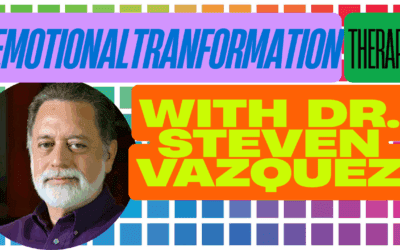





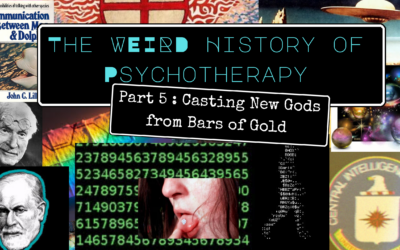
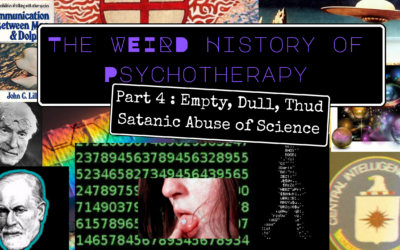
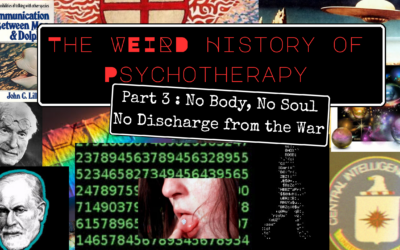
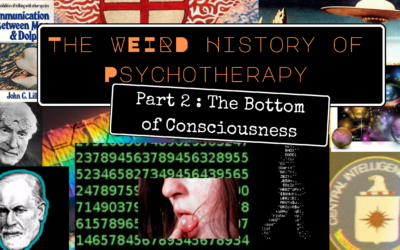

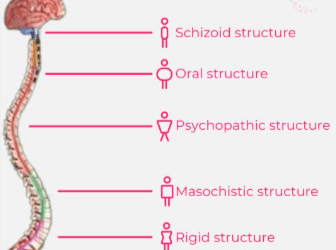










0 Comments